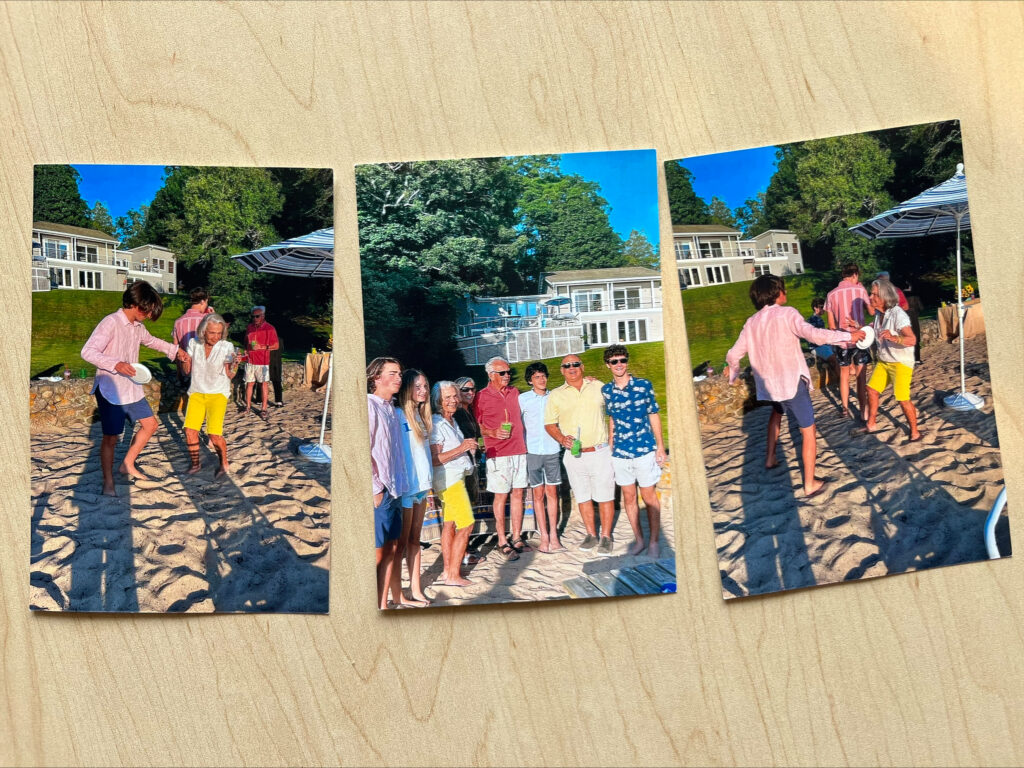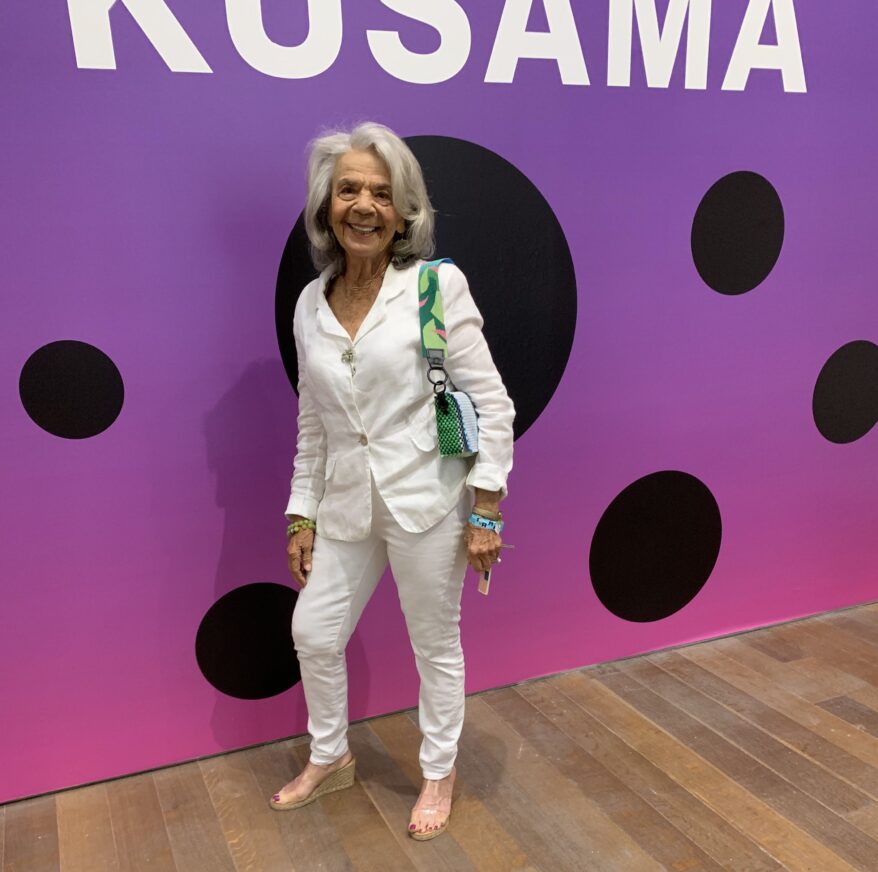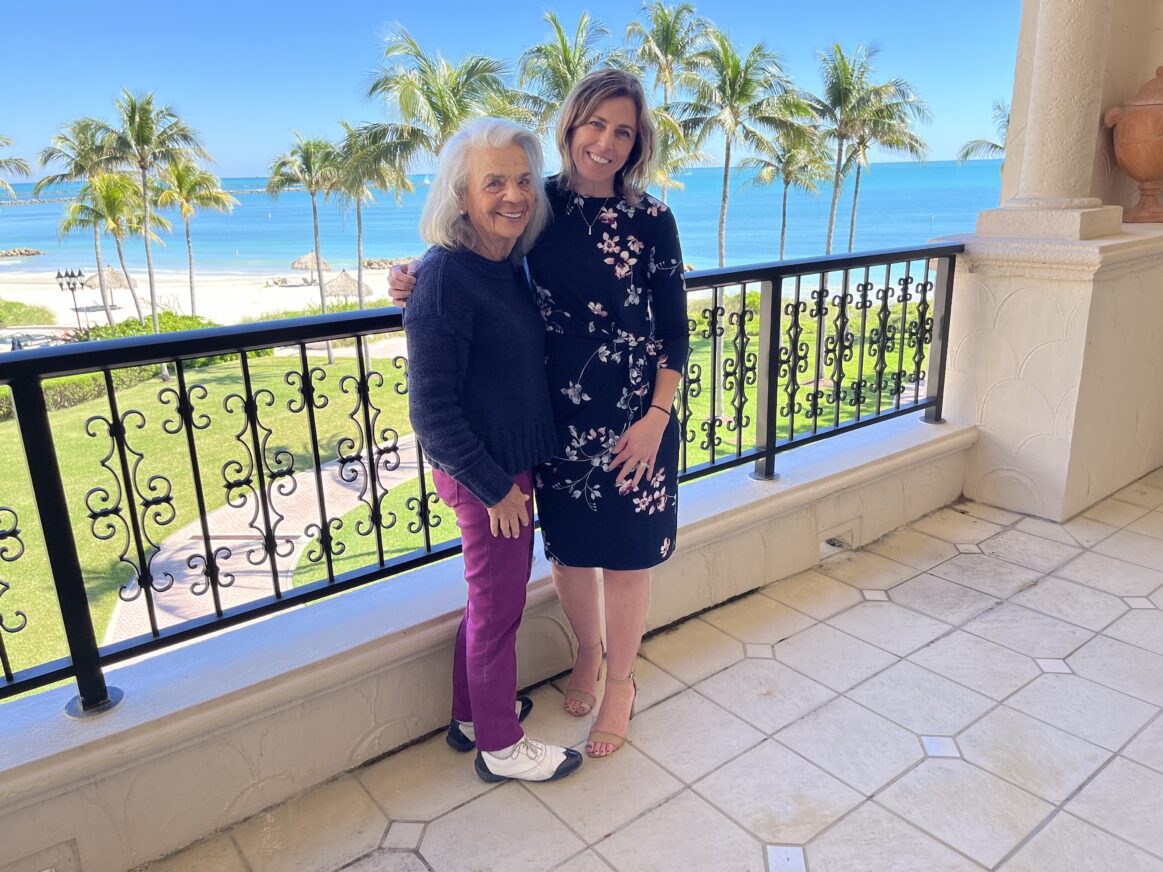Scholarship: – “A grant or payment made to support a student’s education, awarded on the basis of academic or other achievement.”
– “Academic study or achievement; learning of a high level.”
Sandy Slotnik, Northeastern CPS Alumna, resides in Miami. Her connection to Northeastern’s College of Professional Studies is generational. And now, she’s giving back.
Slotnik’s father, Charlie Kesselman, grew up in a working-class family that spoke mostly Yiddish, some Russian and little English. He was one of seven children, including a blind sister and another diagnosed with Multiple Sclerosis. At a young age, he felt compelled to help his family. Slotnik said, “I remember my father telling me that he wanted to get a college education to better himself and also to provide for the family, so he attended Northeastern University in the [19]20’s.”
After her father passed away, Slotnik discovered that he had continually donated to Northeastern University his whole life. “It probably wasn’t much because they weren’t wealthy, but he always gave back.” she said.

Her mother, Frances, was from a more privileged Jewish family. Frances was the only girl in a family of four children. Her brothers were given the opportunity to attend college, but because women were often discouraged to pursue academic achievement at that time, she wasn’t extended the same opportunity. Nevertheless, Frances was keen to establish herself and so she enrolled in secretarial school where she learned basic shorthand and typing skills.
While her mother worked as a secretary, her unrequited academic aspirations lingered and her reverence for higher education remained intact. She became active in the Women’s Scholarship Association, a progressive organization that raised money for women who wanted to go to college but could not afford it. Slotnik recalls, “My mother was passionate about that organization and active for a long time. Growing up with that, I always knew I would attend college. It’s amazing how deeply our lives are influenced consciously and unconsciously by our environment.”
Defining a Scholar
Scholarship, according to Slotnik, is about more than just giving money. It is an aspirational identity. “When I think of the word ‘scholar’ I think of someone who is educated and smart. I have always wanted to be well-educated, but I never thought I was smart enough. I had trouble reading and concentrating, and I always felt distracted.”
Slotnik’s own school days were complicated. Despite being equipped with both a strong work ethic and deep philanthropic passion passed on by her parents, her brain and its capacity to learn through traditional academic methods didn’t quite cooperate.
I knew I had this problem, but my parents didn’t fully recognize it. At some point in high school, I was given a timed SAT test – I had difficulty finishing anything on time – although I was getting good marks my senior year in high school I had difficulty with comprehension and I couldn’t retain information, so yes, I had trouble.
Despite her challenges, Slotnik graduated high school in 1957. Her sister went to Bennington College in Vermont and, she said, “I thought I was supposed to follow in her footsteps; she was beautiful, popular and smart, and I wasn’t any of these things. I knew that I had to make my own footprint but I wound up following my sister to Bennington. And that was where life changed for me a great deal.”
College was difficult for Slotnik. By December 1960, her senior year, the college said Slotnik wasn’t fulfilling capabilities and they asked her to take leave and see a doctor for some learning difficulties that a few of the professors had observed. “It might sound like I got kicked out, but it really was a turning point in my life. They basically gave me a second chance because they told me that if I took leave and took the time to look at my challenges to try to find a different approach, I could come back.” she said.
“I’m actually proud of it all. Diagnosing something like a learning disability in the early 1960’s is special.”
– Slotnik
It wasn’t until 1968 when the second edition of the Diagnostic and Statistical Manual of Mental Disorders (DSM), the handbook used by health care professionals in the U.S. and much of the world as an authoritative psychiatric diagnostic tool, was published that a disorder resembling Attention Deficit Hyperactive Disorder (ADHD) was recognized.
Unfortunately for Slotnik, she was right behind this curve. But because her professors at Bennington were avant-garde enough to recognize the difficulties she was having in class, she was able to take the necessary time to recalibrate. By her senior year, Bennington allowed Slotnik to return, and they assigned a counselor that she met with weekly. “The counselor was a sculptor, and he was so caring and supportive of whatever work I decided to do, he encouraged me and left a lasting impression to this day.”
Slotnik successfully graduated in 1962 with a bachelor of arts as an art major. After college, she returned to Brookline and took a few jobs but then decided she wanted to fulfil her childhood dream of becoming a teacher. That’s when Slotnik decided to go to Northeastern University’s night school (now the College of Professional Studies). Her parents said they wouldn’t pay for it, so she paid for it herself. “It was kind of a blur but I did it. I worked by day, lived at home and studied at night. I couldn’t afford an apartment doing everything else. It was hard.”
Around this same time, Slotnik met Joe, her now husband of 60 years. She said, “As a woman, I was a victim of my generation. So, when I knew I was going to get married, I said ‘I don’t need this graduate education anymore, I’ve got a guy.’ But my husband looked at me and said, ‘you’re going to finish that course and take that final exam!’ And I did. He encouraged me to be myself.” she said. While she didn’t complete her graduate degree straight away, pausing when she had her first child, she returned to Northeastern University in the 70s after about a ten-year hiatus.
“This is another thing I respect about Northeastern University – they were willing to take me back and accept all of my credits.” she said. Slotnik earned her graduate degree from Northeastern School of Education in 1973.

“I remember so vividly, I took a streetcar to the graduation ceremony, and when they gave me that diploma, they not only congratulated me, they spoke to me as an individual. The dean at the podium said ‘You’ve done great, come back and do a doctorate.”
That recognition and encouragement gave Slotnik a sense of confidence and made her feel capable of doing more, and that feeling stayed with her. She said, “That’s something I’ve noted about Northeastern all around. While I’m over here thinking I’m just ordinary, they are recognizing the unique parts of me and helping me see my best self! I got the message loud and clear: You can have setbacks but you can also move forward. Eventually.”
Slotnik then started to volunteer in the public schools, and one day the principal of the local public school said that the art teacher dropped out and asked if she could teach. “I was petrified but I grabbed the opportunity.”
Slotnik enjoyed her time as an Art teacher during the 70’s, and 80’s. Eventually, she moved on to help in the math department. As her own kids grew older, and her husband’s career took a different turn, they thought about trying something different. Her husband suggested they move to Florida. When the couple relocated, Slotnik initially commuted back and forth to Massachusetts to continue to work as a teacher. Shortly after settling in their new home, she became involved in volunteering for local art museums. The teaching gig faded and Slotnik enjoyed the next years building deep relationships and doing volunteer work with art museums in Florida. The museum was affiliated with Florida International University, a state university that focuses on providing opportunities to underserved applicants.
Reconnecting with Northeastern
Now equipped to actualize her life and continue to contribute to her community, Slotnik’s Northeastern experience seemed to fall in the rearview. Then in 2021, Slotnik’s daughter, Julie, scouted the Northeastern University campus with her teenage children. Knowing that her mother was an alumn, she left Slotnik’s contact details at the admissions department. Tara Esfahanian, CPS Director of Development, reached out and that’s when Slotnik joined the CPS Scholarship Committee, a committee that reviews applications for scholarships on behalf of the college. The Committee reads applications of underserved candidates who apply for help in their studies and makes funding recommendations.

“Tara and I wound up connecting in Miami on a visit in January 2022. I invited her over and we chatted. We had lunch and she was fabulous. I was so honored and privileged that she even asked me to be part of the committee.”
Sandy’s own educational journey at Bennington and Northeastern, offers a familiarity with the non-linearity of many individual learning paths at CPS. Esfahanian, recognizing that this understanding is critical when evaluating scholarship candidates who may have faced challenges or disruptions in their own education, led her to believe that Slotnik was a perfect fit.
Esfahanian said, “I quickly knew that she would be a welcomed addition to the CPS Undergraduate Scholarship Committee. Sandy approaches the work on the committee with an understanding of selecting scholarship recipients who not only demonstrate academic excellence but also embody the resilience and determination needed to navigate life’s twists and turns. She has a spark for life and a passion for helping others, and she’s been there herself. Her vibrant personality, grit, passion, and drive are all traits that resonate in so many of our current CPS Students.”
“This all takes me back to my father. Reading these applications, how he fought for what he needed to do to take care of his family. They’re not just young, the applicants are like I was, they might have children, they are working and providing for their family, and they have a goal to make things better. And they don’t take things for granted.”
One of Slotnik’s grandchildren is a Junior in high school. “He’s looking at a lot of colleges and he told me he liked Northeastern University the best – he knew nothing about my or my father’s history there. Maybe he likes it for the same reasons that attracted my father and myself.”
Ultimately, Slotnik and her husband have decided to put their own money behind the scholarship initiative.
“I have many luxuries in my life and I do want to give back. That’s the message that I’ve learned. I have been fortunate that I have been given something from my education and it’s a privilege. I have been privileged.”
Slotnik, who turns 85 this year, was the first person in her family to go to graduate school. “I did make my own mark, my own footprint. We all have memories, and we all have dreams, and one of my dreams is to develop a scholarship for students at Northeastern. Throughout my life I have seen that its important for people to have things that other people can’t take away; like education. I want to give something to someone that nobody else can take from them. It also means that I still have a dream, a dream to give back.”